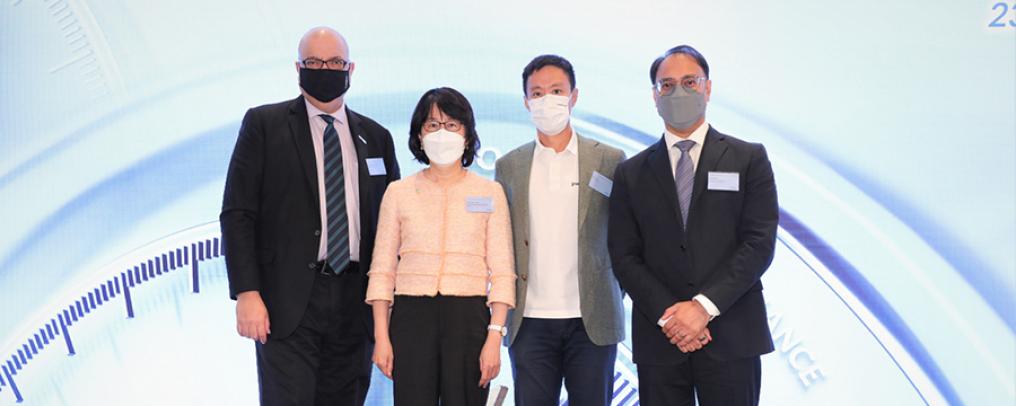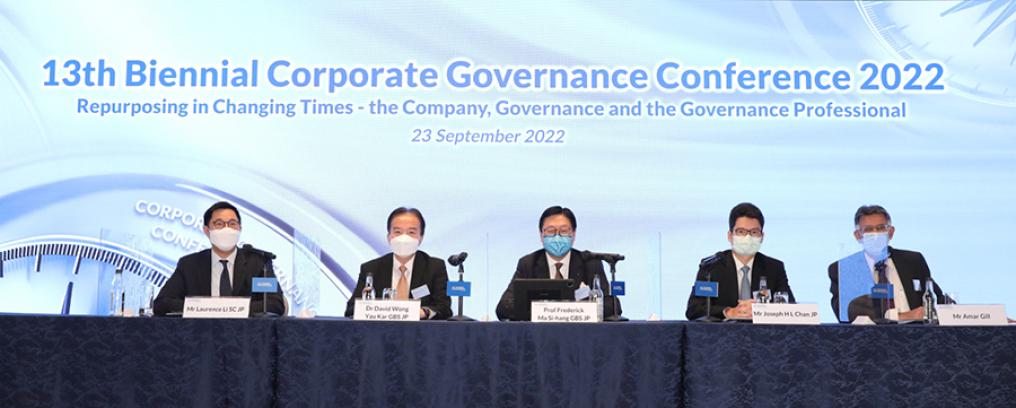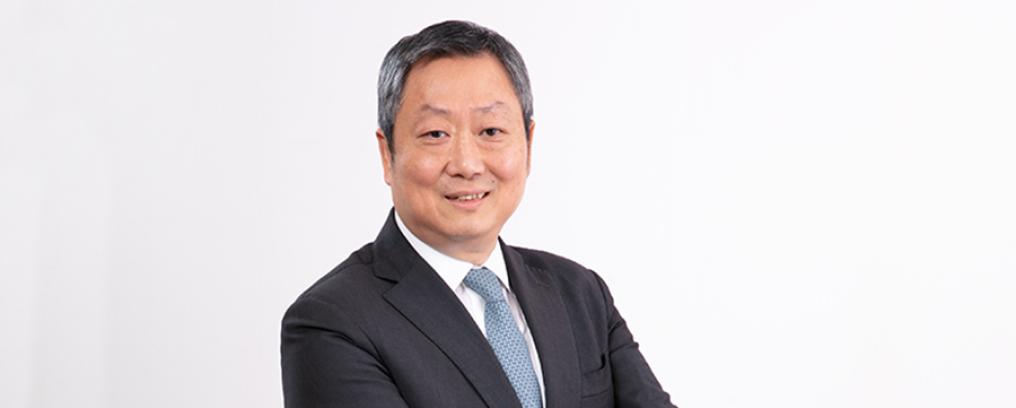In today’s business environment, how well organisations are able to adapt to a fast-changing operating environment has become a critical factor for their future success. Our Institute’s 13th Biennial Corporate Governance Conference, held in hybrid mode on 23 September 2022, focused on a number of areas where a successful adaption to rapid change is particularly crucial.
The first part of our CGC 2022 review, published in last month’s CGj, looked at two such areas – climate change, and diversity and inclusion. This month our journal looks at the CGC key takeaways on the challenges involved in adapting to technological change and at how governance leadership can boost Hong Kong’s competitiveness in the years ahead.
The following pages offer many specific and practical insights, but I would like to focus here on a consistent theme of the forum, which is particularly relevant to both of these themes – namely that high standards of governance will be all the more relevant as organisations and societies adapt to the changing times.
In the context of Hong Kong’s future competitiveness, this is a particularly important point. Speakers and panellists in session four of the conference discussed many different strategies for encouraging innovation. Nevertheless, there was a general consensus that Hong Kong’s reputation as a quality market subject to a corporate governance regime aligned with global best practice has been a key element in maintaining its position as a leading international financial centre. Any deregulatory measures, therefore, need to be considered in the context of maintaining high standards of governance and investor protection.
This issue has a particular relevance to the issue of how to adapt to technological change. Session two of the conference addressed, for example, the issue of how far governance frameworks can be ‘automated’ via blockchain and smart contract technologies. This process is already underway in decentralised autonomous organisations (DAOs) and may seem to be an alarming development for members of our profession – does this mean that we will soon be out of a job?
Speakers and panellists in the second session of the conference emphasised that, while technological change will continue to transform every sector of our economy and indeed our very way of life, governance issues aren’t going to magically disappear in the process. Ultimately, it is people that set up and run technology systems. Setting up an automated framework in a DAO still requires engagement with the critical governance issues facing any organisation. For example, how do you build an effective governance framework to oversee risk management? How can you ensure compliance and transparency? How do you set up effective internal controls for handling conflicts of interest?
Moreover, some of the decisions organisations need to take when addressing these governance issues will be ethical decisions and achieving good ethics is not subject to an easy ‘tech fix’. Ada Chung Lai-ling FCG HKFCG, Privacy Commissioner for Personal Data, Hong Kong, and a panellist in session two of the conference, pointed out that our company law, not to mention the core governance principle of accountability, is predicated on there being humans in charge of such decisions.
The key takeaway, then, from these interesting discussions is that our expertise as governance professionals will be just as relevant to the organisations of the future as they are to the organisations of today. We will certainly need to be more tech savvy and our roles will need to adapt to the changes that technology will bring, but fundamentally there will always be a need for human beings trained in the art of good governance.
The first part of our CGC 2022 review, published in last month’s CGj, looked at two such areas – climate change, and diversity and inclusion. This month our journal looks at the CGC key takeaways on the challenges involved in adapting to technological change and at how governance leadership can boost Hong Kong’s competitiveness in the years ahead.
The following pages offer many specific and practical insights, but I would like to focus here on a consistent theme of the forum, which is particularly relevant to both of these themes – namely that high standards of governance will be all the more relevant as organisations and societies adapt to the changing times.
In the context of Hong Kong’s future competitiveness, this is a particularly important point. Speakers and panellists in session four of the conference discussed many different strategies for encouraging innovation. Nevertheless, there was a general consensus that Hong Kong’s reputation as a quality market subject to a corporate governance regime aligned with global best practice has been a key element in maintaining its position as a leading international financial centre. Any deregulatory measures, therefore, need to be considered in the context of maintaining high standards of governance and investor protection.
This issue has a particular relevance to the issue of how to adapt to technological change. Session two of the conference addressed, for example, the issue of how far governance frameworks can be ‘automated’ via blockchain and smart contract technologies. This process is already underway in decentralised autonomous organisations (DAOs) and may seem to be an alarming development for members of our profession – does this mean that we will soon be out of a job?
Speakers and panellists in the second session of the conference emphasised that, while technological change will continue to transform every sector of our economy and indeed our very way of life, governance issues aren’t going to magically disappear in the process. Ultimately, it is people that set up and run technology systems. Setting up an automated framework in a DAO still requires engagement with the critical governance issues facing any organisation. For example, how do you build an effective governance framework to oversee risk management? How can you ensure compliance and transparency? How do you set up effective internal controls for handling conflicts of interest?
Moreover, some of the decisions organisations need to take when addressing these governance issues will be ethical decisions and achieving good ethics is not subject to an easy ‘tech fix’. Ada Chung Lai-ling FCG HKFCG, Privacy Commissioner for Personal Data, Hong Kong, and a panellist in session two of the conference, pointed out that our company law, not to mention the core governance principle of accountability, is predicated on there being humans in charge of such decisions.
The key takeaway, then, from these interesting discussions is that our expertise as governance professionals will be just as relevant to the organisations of the future as they are to the organisations of today. We will certainly need to be more tech savvy and our roles will need to adapt to the changes that technology will bring, but fundamentally there will always be a need for human beings trained in the art of good governance.



